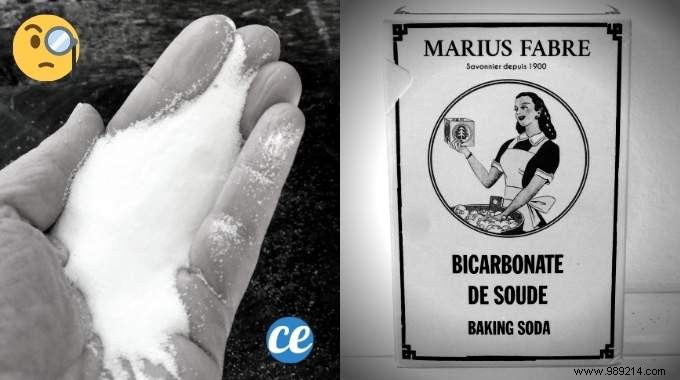
We all know baking soda.
This little white powder is simply magical!
Its uses at home, in the garden, for health or beauty are simply countless.
Suffice to say that this natural and economical product is simply indispensable.
But as useful as it is, what do we know about bicarbonate? Where does baking soda come from?
Finally, we don't know much about this little magic powder!
So at comment-economiser.fr, we wanted to fix this little oversight. Discover now the incredible story of baking soda!
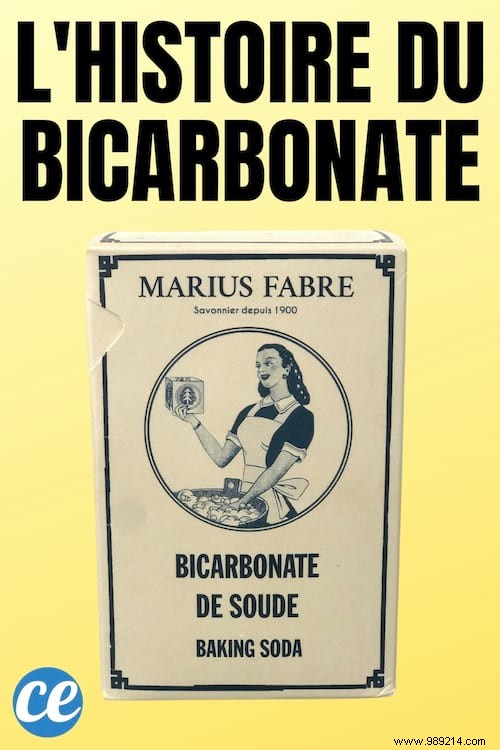
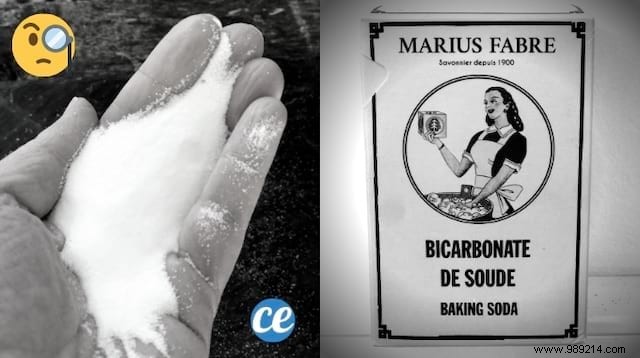
Bicarbonate has its roots in very ancient history. Certainly, it is not about bicarbonate as we know it today.
But, in ancient times, the Egyptians already used something very similar to it.
It is actually a cousin product called natron. It is a mixture of carbonate and baking soda. It was found in particular in certain lakes.
Thanks to its preservative properties, the Egyptians of the time used it to embalm their dead.
It makes you smile when you know that nowadays we use baking soda to stay healthy!
The Egyptians knew its cleansing virtues, as well as most of its properties. They used it in particular for washing and brushing their teeth.
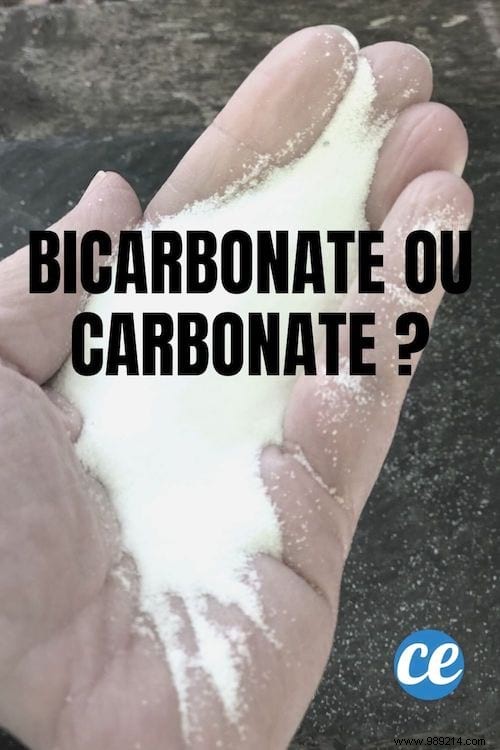
The history of bicarbonate as we know it is closer to us.
So, did you know that the direct ancestor of baking soda was sodium carbonate?
This is probably why it is also called soda ash.
Even better, some have even mistakenly called it "soda".
The problem is that sodium carbonate has nothing to do with caustic soda.
This is used in particular to unclog pipes. And only if they are strong enough to undergo this treatment!
However, it must be recognized that sodium carbonate and soda have one thing in common:it is irritating to the skin when used.
This sodium carbonate is also an essential product.
And although today it is hardly found in our homes, it still has many industrial uses.
And these are not the least:it is used, for example, to prepare detergents and household detergents. It is also one of the components of glass. And it is also useful for making enamels.
But the most important thing is that from sodium carbonate we can easily make our famous baking soda for cheap!
Finally, remember that sodium carbonate has been known for centuries!
But it fell somewhat into oblivion... and it wasn't until 1789 that a French chemist, Nicolas Leblanc, rediscovered it.
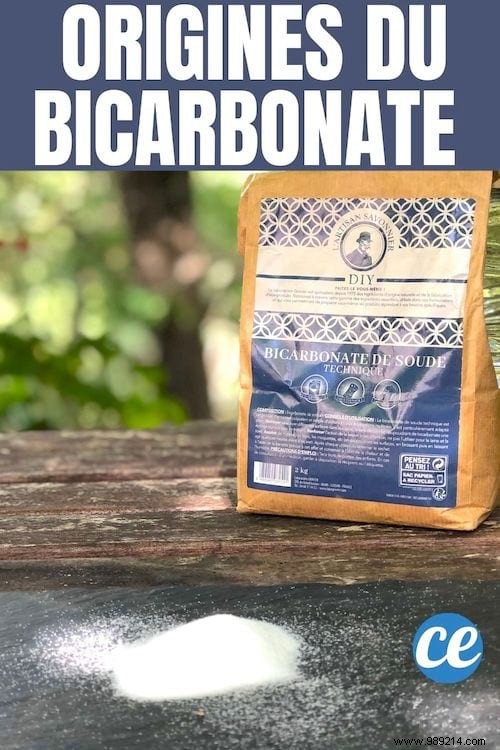
Next, it's the turn of two New York bakers to contribute their stone to the history of bicarbonate.
In 1846, they invented a simple process to refine sodium carbonate and transform it into sodium bicarbonate.
In 1863, the future of bicarbonate was written in France. Thanks to the industrial group Solvay, the production of carbonate is industrialized. But above all, the refining of the bicarbonate has improved even further.
It was at this time that we obtained a much purer product that looked just like the one we have in our cupboards today.
Moreover, the Solvay brand continues to market bicarbonate, as do other manufacturers such as Cérébos.
Since then, the success of bicarbonate has never wavered. It became the favorite product of housewives from the 19th century until the middle of the 20th century.
After that ? Then, bicarbonate was dethroned by the armada of chemical household products that surged in the 1950s, with the backing of advertising and marketing campaigns...
We all remember Coluche's sketches making fun of laundry detergent ads! What would he say today?
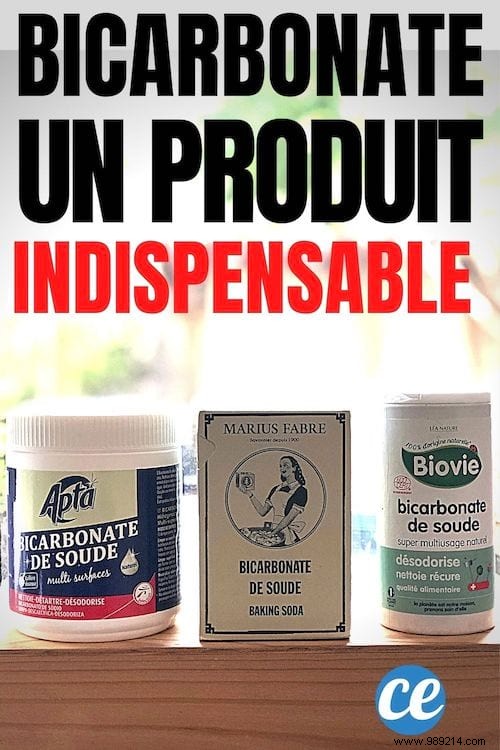
For some time now, bicarbonate has been making a comeback. More than a fashion phenomenon, it responds to a need to use more natural and more economical products.
Not to mention that it is super efficient and multi-purpose!
It naturally found its place first in the kitchen, then in the toilet and even in the medicine cabinet and the bathroom.
Know that in Quebec, you will not find baking soda...
But of the "little cow"! This term refers to the image found on the box of baking soda sold by Cow Brand.
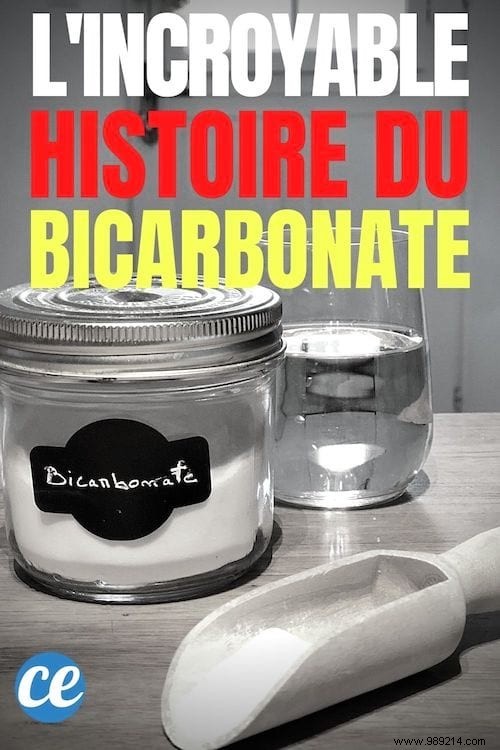
The success of bicarbonate is such today that you can find it everywhere:in grocery stores, organic stores, supermarkets, DIY or gardening stores.
It can also be easily found on the Internet.